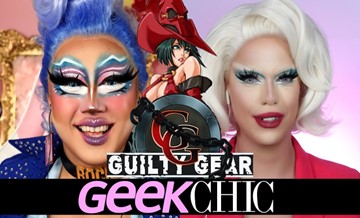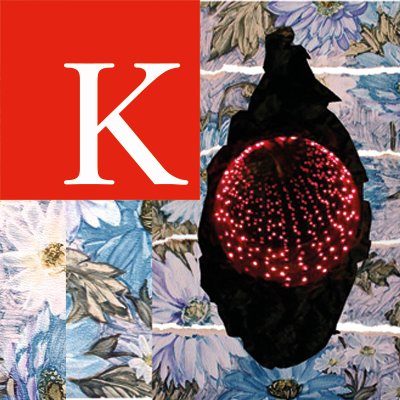“Queerness? What queerness?
This is a question that often comes up when I casually mention my interest in queer game studies. Game studies is slowly, but surely, gaining ground in academia. There have been books, articles, conferences and conversations published over the last three decades, tackling diverse and understudied aspects of this medium. At present, debates in game studies rarely grow beyond academic and industry circles. However, many of them, including queerness in games, are a relatively novel yet vital dimension of gaming culture that will shape the years to come.
In AAA titles (high grossing, blockbuster-like video games), most visible and evident in-game queer instances are currently restricted to a line of dialogue, or a (gay) kiss at best. This type of content is often optional and can easily be avoided. Additionally, it goes without saying that most commercial games still obsess over cis-gendered men in their thirties in increasingly repetitive post-apocalyptic environments, which hasn’t contributed to a much-needed culture of on-screen diversity. As a response, the indie scene has taken the lead in terms of queer representation with titles such as Dream Daddy, A Summer’s End, Gone Home, Night in the Woods, but also queer embodiment and empathy (I recommend checking games created by Robert Yang or Merrit Koppas to name but a few). Their success has been noticeable, but their influence in the industry remains limited beyond LGBQT+ circles.
Fortunately, gamers do not stay still. Games spark movements and gather communities. Whether it is through the reappropriation of a character (see, for instance, Peony as a wholesome daddy from Pokémon Sword and Shield), the modding of games or the promotion of dissident practices, players interact beyond the means they are given. As such, games become sources of inspiration for a plethora of online content, including fan-arts, forum threads, memes, gifs, or even fully-fledged fan-made games.
Queer game studies goes far beyond the representation of alternative genders and sexualities. Currently, I look into players’ suspension of disbelief in games, its awkwardness, and how it creates ludic lingos and tropes for the community. Regarding the latter, I will be forever curious as to why floating continents (image 1) or underwater cities exploit archetypes of lost civilisations condemned to disappear again as soon as rediscovered. Or why it is that crossing half of country (such as in Assassin’s Creed) in less than ten minutes feels believable, and, more importantly, long enough. These reflections are telling of the evolution of our expectations of new game releases, and create a certain aesthetic and distortion with reality, which, while accepted as normal by most gamers, can be read as queer.

(Chrono Trigger), whose fall is witnessed by the player soon after entering it.
Source: https://gamicus.fandom.com/wiki/Kingdom_of_Zeal_(Chrono_Trigger)
This – the queerness in games, but above all, the queerness that manifests through games, gaming and gamers, is what I find the most fascinating. Video games should be a platform of unlimited possibilities, and I seek to push, alongside other queer game scholars, for new understandings of play – playing to fail, empathise, heal, dream, cry and explore our (queer) selves. There is value in seeing queerness where it isn’t supposed to be as it is an approach which deconstructs normative play, rules and practices. Gaining perspective on these is often the best way to rekindle ourselves with gaming, especially when both the mainstream game industry and community remain hostile to us. This is what we attempt in our research: making sense of ours and others’ dissident identities, and revealing queer dormant instances through play.
The gaming community is now multi-generational and self-reflective. The landmarks reached and changes made in gaming have shaped a certain nostalgia for the past, and a fondness for old game features which has bled out beyond video games. Pixel arts and chiptunes, borrowing from 8 and 16-bit games visuals and music, have made their way into the mainstream, so much that the new wave of nostalgic aesthetic is now reminiscent of the PlayStation and Nintendo 64 era. We are also witnessing an increasing of “demakes” recreating mainstream titles with early 3-D graphics. This demonstrates the impact of old games on seasoned gamers, but also a renewed interest from younger gamers about past titles.
This legacy goes far beyond “conventional” gaming circles. Drag royalties Rock’M Sakura and Nicky Doll, two contestants of the Emmy-sweeping reality show RuPaul’s Drag Race, have dedicated several episodes on the fashion of the Final Fantasy, Guilty Gear and Danganronpa series in their Geek Chic video channel (image 2). Drag, gaming and outfits meet in these comical yet serious videos about how video game characters have inspired the artists’ outfits and fashion sense.

Despite this growing diversity, the current fight for gaming capital that plagues the gaming “community” is still raging. Debates about the identity of a “real gamer”, the definition of a “good” game or the understanding of what a community should be like abound and often lead to toxic online environments. A queer lens enables us to tackle these gaps and frictions, not necessarily by directly running counter to the dominant discourse, but by acknowledging the bizarre, creating space for the unconventional, the failures and the unexpected, and above all, a diversity of play and players that is already there.
And this isn’t insignificant. The video game industry is both influential and powerful, and yet critically understudied. While gaming culture still equates to a complex and messy struggle for cultural capital, it needs be recognised for its plurality, and will, hopefully, be understood more comprehensively. For this happen, we need queerness in and out of games, amongst game developers, in academic and non-academic conversations, in drag queens’ videos, nightclubs, on public transport. Queerness might be effervescent, but it is also transformative, and many transformations are still needed in our digital societies. In their seminal book, Bo Ruberg states rightfully that video games have always been queer. I dare add that video games, are, against all odds, the queerest medium today.
Gaspard Pelurson loves playing, teaching with, and writing about video games. His first book, Manifestations of Queerness in Video Games, is now available for order at: https://www.routledge.com/Manifestations-of-Queerness-in-Video-Games/Pelurson/p/book/9780367900649
